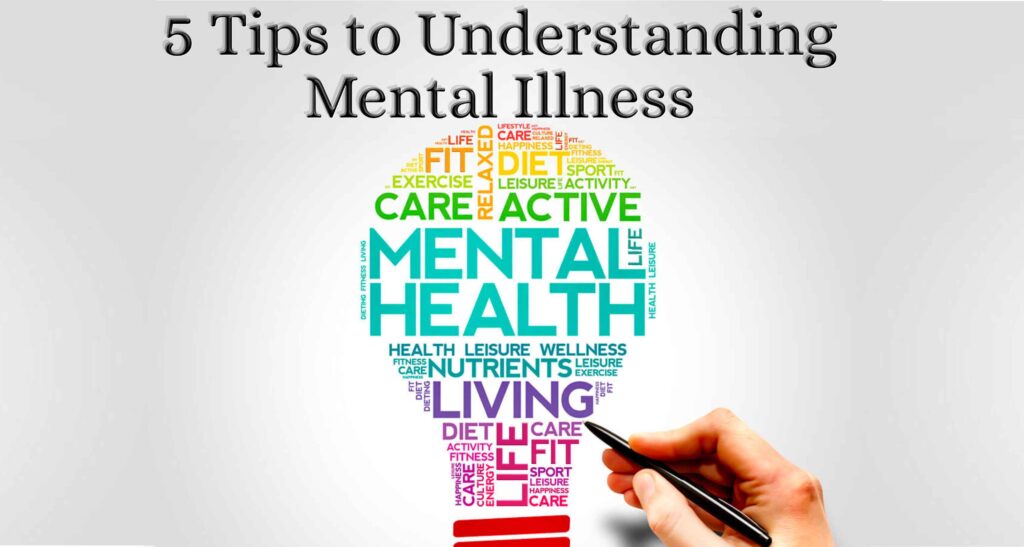5 Tips to Understanding Mental Illness
The term mental illness is used in a general way to describe conditions that include symptoms that can affect a person’s thinking, perceptions, mood and or behaviour.
The majority of people have some form of what we will refer to as mental dis-ease. We are referring to it in this way because by splitting it into its component parts can aid in the understanding of the original intent of the word disease, whereby the addition of the prefix ‘dis’ to the second element ‘ease’ suggests it is a lack of ease.
If a mental dis-ease is ignored and or denied the chances are the condition will deteriorate and begin to express in a variety of differing ways, which can lead to increased feelings of sadness and or depression. It can also lead to growing feelings of tension and or anxiety. There can also be physical manifestations such as aches and pains, eating in excess or insufficiently and other actions such as the consumption of more alcohol than is healthy, which inevitably leads to the decline of overall physical health.
 Possibly one of the best things to have come from the last couple of years, is that so many more people have become aware that they have some form of mental dis-ease and that they would like to manage it better and hopefully even resolve it.
Possibly one of the best things to have come from the last couple of years, is that so many more people have become aware that they have some form of mental dis-ease and that they would like to manage it better and hopefully even resolve it.
Below are some insights and first steps into the understanding of mental dis-ease and the beginning of the journey to dealing with and even ultimately resolving it.
- Understanding you are not alone can be a great source of relief for many. It can also help tremendously to see, read about and talk to others that successfully manage or have even resolved personal traumas and psychological issues. Because learning that others can feel similarly and that no longer do, can promote a desire strong enough to seek resolution for yourself as well.
- Asking yourself why you feel the way you do can be a great help in discovering the roots of your feelings. This can be assisted greatly with practises such as mindfulness, meditation and talking therapies. Because if you understand the why, you are better able to do something about it.
- We, more often than not, are able to show compassion for someone that is dealing with a challenging situation, yet often neglect to do the same for ourselves. Learning to be understanding and compassionate with yourself is one of the fundamental keys of resolving mental dis-ease.
- Understanding why you tend to stay in your “comfort zones” is really interesting. The primary driver for this is generally your fear centre, because its primary job is to protect you and keep you safe. Sometimes it can be a little too effective at this and it could be keeping you from changes that may very well be good for you. This is because one of the fear centres’ key markers for safety is familiarity, but just because something is familiar, does not mean it is good for your wellbeing

- Breathing. We all do it, all day every day, yet we seldom pay much attention to it, if any. It can however be a significant indicator of how you are feeling. For instance short shallow breaths can be an indication of fear, it can also simply be an unconscious way you might generally breathe. Interestingly your body and mind naturally observes this fundamental function and reacts accordingly, even if you do not realise consciously that this is what is happening. This is really easy to test. Simply take a lovely big deep breath in, holding it in for a second or two and then let it out. You can often enhance the feeling of relaxation by adding a big sigh of relief to the letting out part of the breath. Do this three times in a row and then notice if you feel more at ease and relaxed as a result.

